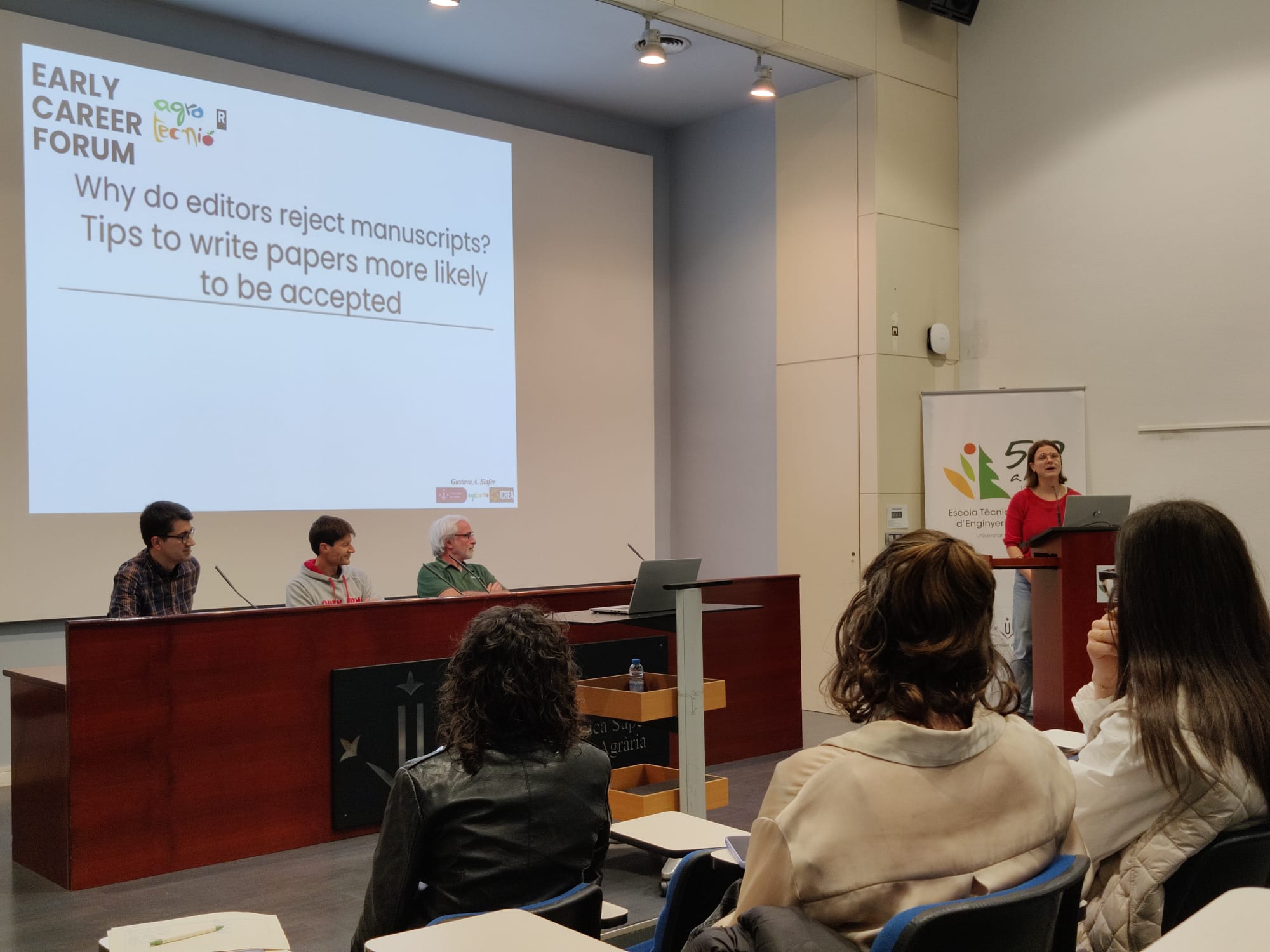For early-career researchers, capturing reviewers’ attention and avoiding manuscript rejection are critical challenges. To address these concerns, the latest Agrotecnio Early Career Forum (held on April 10) invited three seasoned journal editors—Professors Gustavo Slafer, Robert Soliva, and Àlex Bach—to share their insights and practical advice. As with previous sessions, the event concluded with a tasting, this time featuring fresh spirulina products from local producer Blauver Foods.
The Editor’s Dilemma: Standing Out in a Sea of Papers
Gustavo Slafer, ICREA, UdL & Agrotecnio researcher, highlighted the overwhelming volume of submissions editors face: “Even if we did nothing but read, we couldn’t cover everything published in our field.” His key advice? Write for your audience. A manuscript must not only present solid science but also engage readers: clarity and compelling storytelling matter just as much as data.
Robert Soliva referred to the complexity of the system and the importance of being clear about what you want to say and who is going to read it. The Agrotecnio researcher recommended that before writing, the author should ask himself or herself if the topic is interesting for the industry and peers. Soliva emphasized that novelty alone isn’t enough, research must address pressing questions to resonate with editors and peers. “The difference between acceptance and rejection often lies in communication, not quality,” he noted. His tips for authors:
- Structure logically (chronological order, clear results and conclusions).
- Tailor content to the journal’s scope.
- Seek external feedback before submission.
Lastly, ICREA researcher Àlex Bach explained how, as an editor, it is important to consider three very important variables: novelty, objectives and conclusions -that must match the objectives-. Bach also showed the REFLECT checklist, a document that helps editors to assess papers by focusing on important details from its title, abstract, methods, objectives and outcomes, sample size or sequence generation.
During the Q&A, participants wanted to know how important the cover letter is, the most common errors editors find in the title and abstract or options for rejected submissions.
To end the session, Joan Solè, founder of Blauver, took the floor and hosted a tasting of several spirulina products: spreadable cream, chips or chocolates are some of the options that this local company commercializes.
More information:
- ¿Cómo escribir un artículo científico?, by Gustavo Slafer. Revista de Investigación en Educación, nº 6, 2009, pp. 124-132
- The REFLECT Statement Checklist
- Why do editors reject manuscripts? Gustavo Slafer’s presentation

